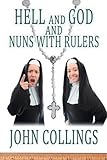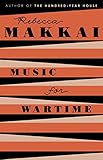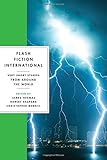 To me, Go Set a Watchman is a worthwhile work, although I wish Ms. Lee had been more precise about the historical context and had made Jean Louise a little less naive. Stylistically, the novel is dated, but that makes it authentic to the place and time in which it is set. Given the shocking instances of racial violence in the United States this past year, it would seem that Go Set a Watchman is relevant to our times.
To me, Go Set a Watchman is a worthwhile work, although I wish Ms. Lee had been more precise about the historical context and had made Jean Louise a little less naive. Stylistically, the novel is dated, but that makes it authentic to the place and time in which it is set. Given the shocking instances of racial violence in the United States this past year, it would seem that Go Set a Watchman is relevant to our times.
Tag: fiction
A review of The Eye of the Sheep by Sofie Laguna
 It’s not just the characters that descend to their lowest level in this book. It’s also the medical profession, governmental welfare programs, and Mobil Oil where Gavin works scraping rust off pipes. However, Laguna never lets the characters – not even the most peripheral – slip into stereotypes. The Eye of the Sheep is a tender and delicate novel, rich with sympathy and understanding, even when it becomes almost unbearably dark.
It’s not just the characters that descend to their lowest level in this book. It’s also the medical profession, governmental welfare programs, and Mobil Oil where Gavin works scraping rust off pipes. However, Laguna never lets the characters – not even the most peripheral – slip into stereotypes. The Eye of the Sheep is a tender and delicate novel, rich with sympathy and understanding, even when it becomes almost unbearably dark.
A review of Hell and God and Nuns with Rulers by John Collings
 As Tristan struggles with school, the crush his best friend has on him, and the crush he has on the young man he met at the party, the reader feels true empathy for the character. Collings’ writing style is conversational, personable, and real; I could almost imagine Tristan sitting across from me at a table in a coffee shop (or maybe over burgers at The Burger House) telling me how he set on his path of self-realization to emerge triumphantly okay at the end of it all.
As Tristan struggles with school, the crush his best friend has on him, and the crush he has on the young man he met at the party, the reader feels true empathy for the character. Collings’ writing style is conversational, personable, and real; I could almost imagine Tristan sitting across from me at a table in a coffee shop (or maybe over burgers at The Burger House) telling me how he set on his path of self-realization to emerge triumphantly okay at the end of it all.
A review of The Boy Who Killed Demons by Dave Zeltserman
 It’s an absorbing novel, and we’re quickly caught up in Henry’s concerns and anxieties. Zeltserman convincingly captures the grumpy, grouchy voice of an adolescent boy – spoilt yet with a core integrity.
It’s an absorbing novel, and we’re quickly caught up in Henry’s concerns and anxieties. Zeltserman convincingly captures the grumpy, grouchy voice of an adolescent boy – spoilt yet with a core integrity.
A review of Invisible Streets by Toby Ball
 I very much enjoyed Toby Ball’s novel, the way his snappy prose propelled the story forward, making everything both more convoluted and clearer at once. He conjured up a vital, bustling sense of place.
I very much enjoyed Toby Ball’s novel, the way his snappy prose propelled the story forward, making everything both more convoluted and clearer at once. He conjured up a vital, bustling sense of place.
A review of Blood to Blood by Ife Oshun
 Blood to Blood is a different take on the vampire and paranormal media craze. Though vampires, witches and werewolves exist in Oshun’s world, a Shimshana is something different, which breathes a degree of freshness into the story. And while paranormal tropes are prominent in the novel–such as a love triangle and the co-existence of vampires, witches and werewolves–the story and characters do not suffer, thanks to Oshun’s expert storytelling ability.
Blood to Blood is a different take on the vampire and paranormal media craze. Though vampires, witches and werewolves exist in Oshun’s world, a Shimshana is something different, which breathes a degree of freshness into the story. And while paranormal tropes are prominent in the novel–such as a love triangle and the co-existence of vampires, witches and werewolves–the story and characters do not suffer, thanks to Oshun’s expert storytelling ability.
A review of Miss Emily by Nuala O’Connor
 O’Connor portrays Emily sensitively and sympathetically. Writers will identify with her need for peace and solitude, co-existing with a yearning for understanding and closeness. Emily’s girlhood friend, Susan Gilbert, who married her brother, Austen, was her closest friend.
O’Connor portrays Emily sensitively and sympathetically. Writers will identify with her need for peace and solitude, co-existing with a yearning for understanding and closeness. Emily’s girlhood friend, Susan Gilbert, who married her brother, Austen, was her closest friend.
A conversation with Nuala O’Connor
 The author of Miss Emily talks about her new novel and how it came about, the research she did into Emily Dickinson’s life and work, some of the relationships in the book (and in Dickinson’s real life), her characters, the relationship between the novel’s style and Dickinson’s poetry, on being a multi-genre author, 3 questions for Emily, and more.
The author of Miss Emily talks about her new novel and how it came about, the research she did into Emily Dickinson’s life and work, some of the relationships in the book (and in Dickinson’s real life), her characters, the relationship between the novel’s style and Dickinson’s poetry, on being a multi-genre author, 3 questions for Emily, and more.
A review of Music for Wartime by Rebecca Makkai
 The theme of Makkai’s collection seems to be the surprising, unusual, surrealistic, and supernatural. It is probably no accident that she starts the collection with a fable, since fables are by definition about the unusual and supernatural. The pogrom/war/ethnic cleansing stories involve startling occurrences, and so do the stories set in contemporary America.
The theme of Makkai’s collection seems to be the surprising, unusual, surrealistic, and supernatural. It is probably no accident that she starts the collection with a fable, since fables are by definition about the unusual and supernatural. The pogrom/war/ethnic cleansing stories involve startling occurrences, and so do the stories set in contemporary America.
A review of Flash Fiction International edited by James Thomas, Robert Shapard and Christopher Merrill
 “Night Drive” by Rubem Fonseca of Brazil is a Stephen Kingish story that shows the Mr. Hyde side of a seemingly benign Dr. Jekyll. Another story that I admire, “The Snake” by Eric Rugara of Kenya, is, on the surface, a picture of family cooperation to band together promptly to rid their home of a snake. It may also be a metaphor for the power of united action against any creeping threat. With eighty-six stories to choose from it is easy for a reader to find something s/he likes in this collection.
“Night Drive” by Rubem Fonseca of Brazil is a Stephen Kingish story that shows the Mr. Hyde side of a seemingly benign Dr. Jekyll. Another story that I admire, “The Snake” by Eric Rugara of Kenya, is, on the surface, a picture of family cooperation to band together promptly to rid their home of a snake. It may also be a metaphor for the power of united action against any creeping threat. With eighty-six stories to choose from it is easy for a reader to find something s/he likes in this collection.